Virtual Desktop¶
In CAPP 30121, you will be doing all your work on a Linux environment. Ordinarily, you would have access to Linux machines in CSIL, a computer lab in Crerar Library. Unfortunately, CSIL is closed during Autumn 2020 so, instead, the CS Department has set up a remote desktop service that will allow you to access the exact same desktop environment you would see if you were sitting at a CSIL machine.
This remote desktop system is called vDesk, and you can access it through a web browser (without installing any additional softare), or using a desktop client (which will usually be faster than using your web browser). For the Virtual Linux Lab, it is enough to access vDesk through your web browser.
In this page, we explain how to log onto the remote desktop. We encourage you to run through these instructions before the Virtual Linux Lab. If you run into any issues, feel free to ask on Piazza, or during the lab itself.
Step 1¶
Open a web browser on your computer, and go to: https://vdesk.cs.uchicago.edu/
You should see this:
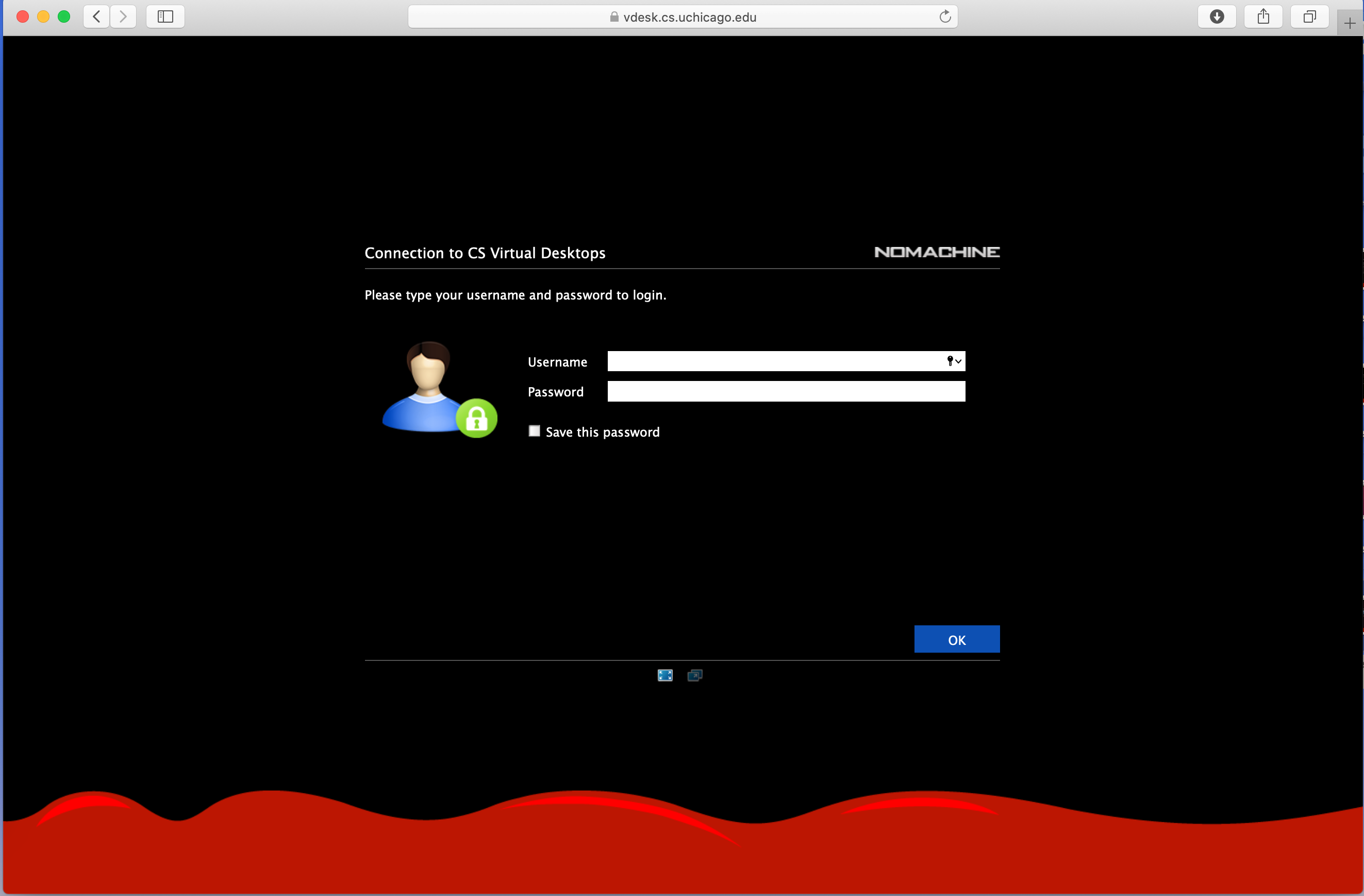
Your username is your CNetID and your password is your CNetID password. Type in your CNetID and password and click OK. It is up to you whether you click the “Save this password” box.
Step 2¶
You will see a series of screens. You can click OK for the first three screens:
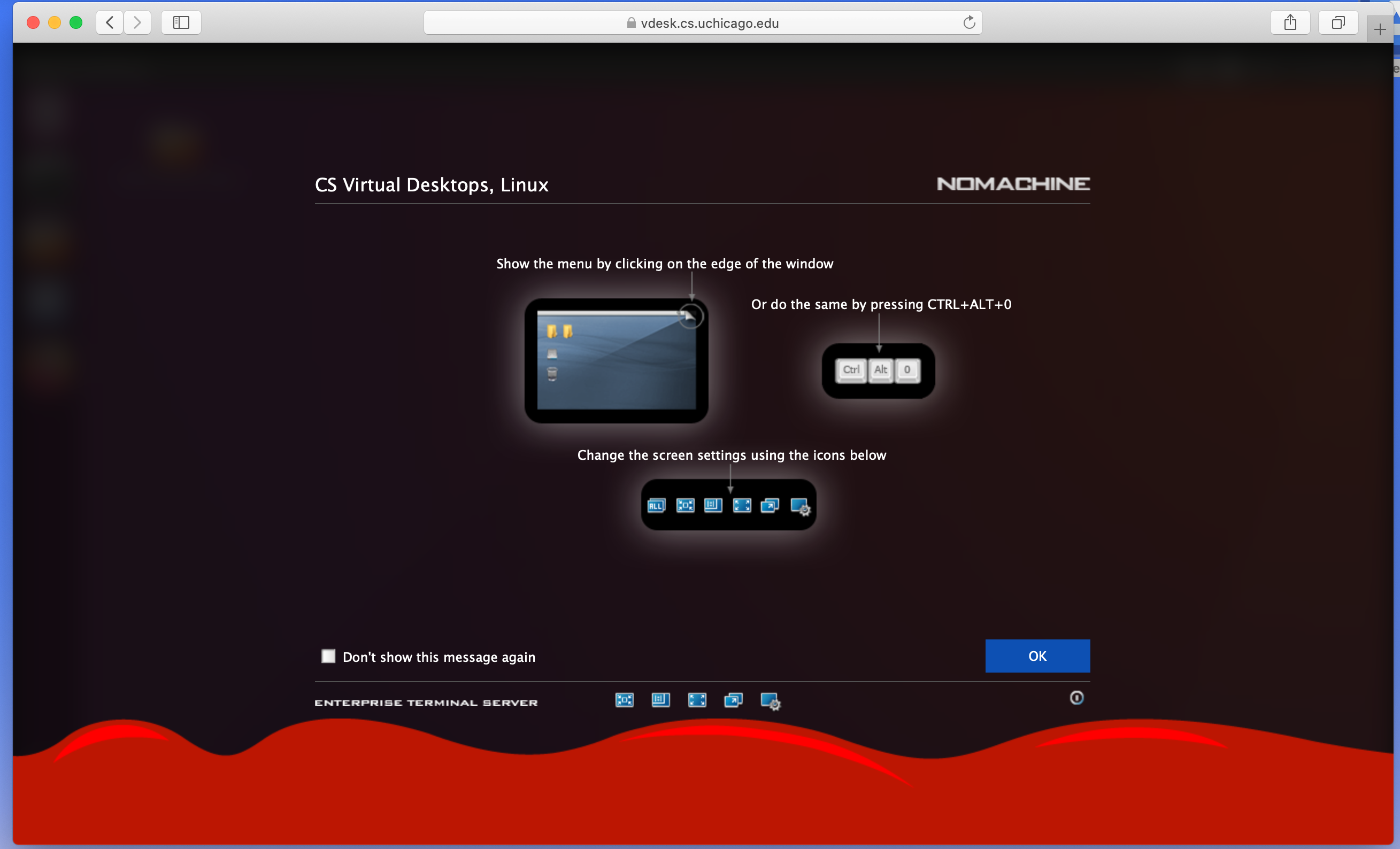
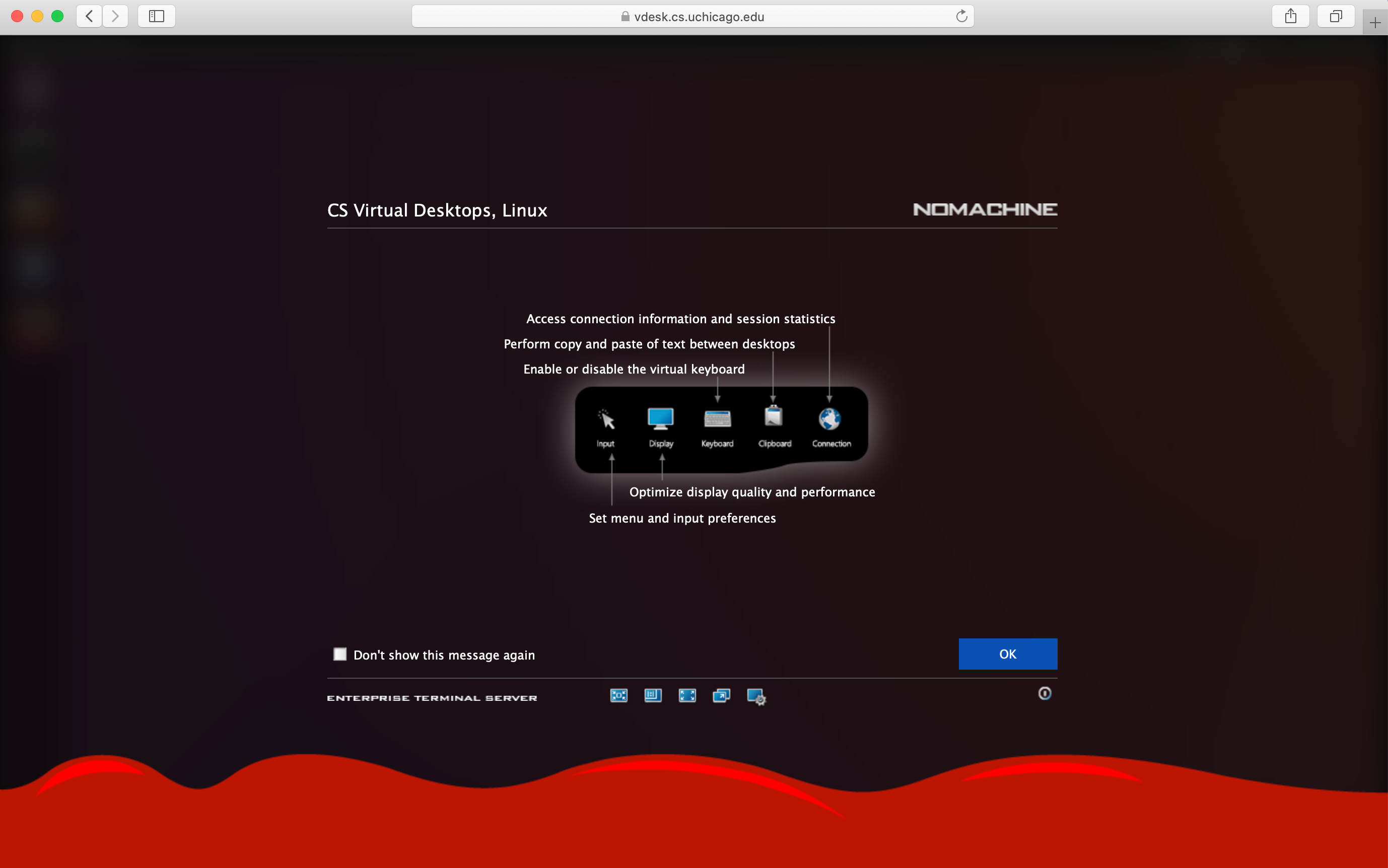
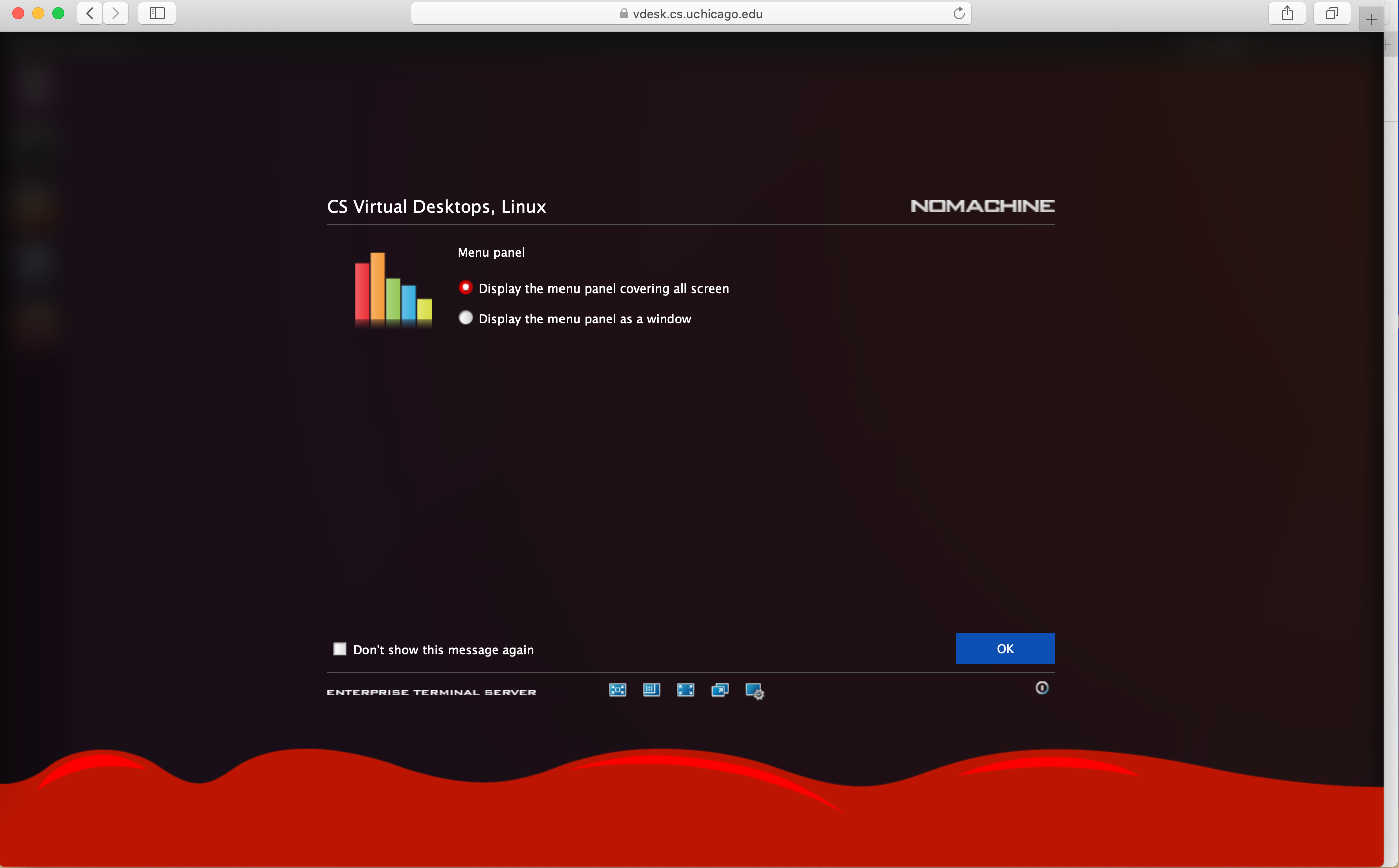
For the next one, we recommend clicking the box that says “Change the server resolution to match the client when I connect” before you hit OK.
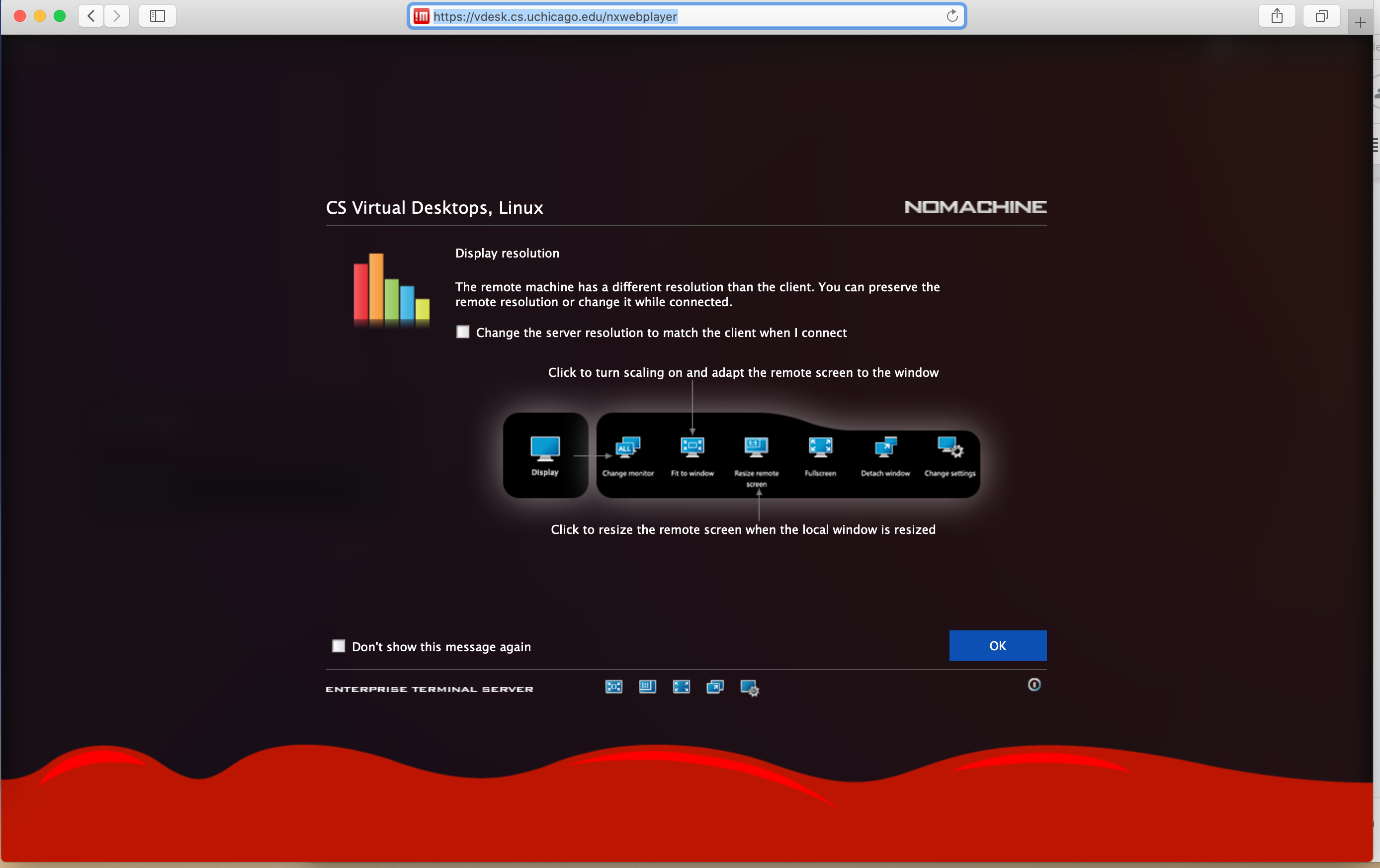
Step 3¶
Once you click through everything, you should get to a screen that looks something like this:
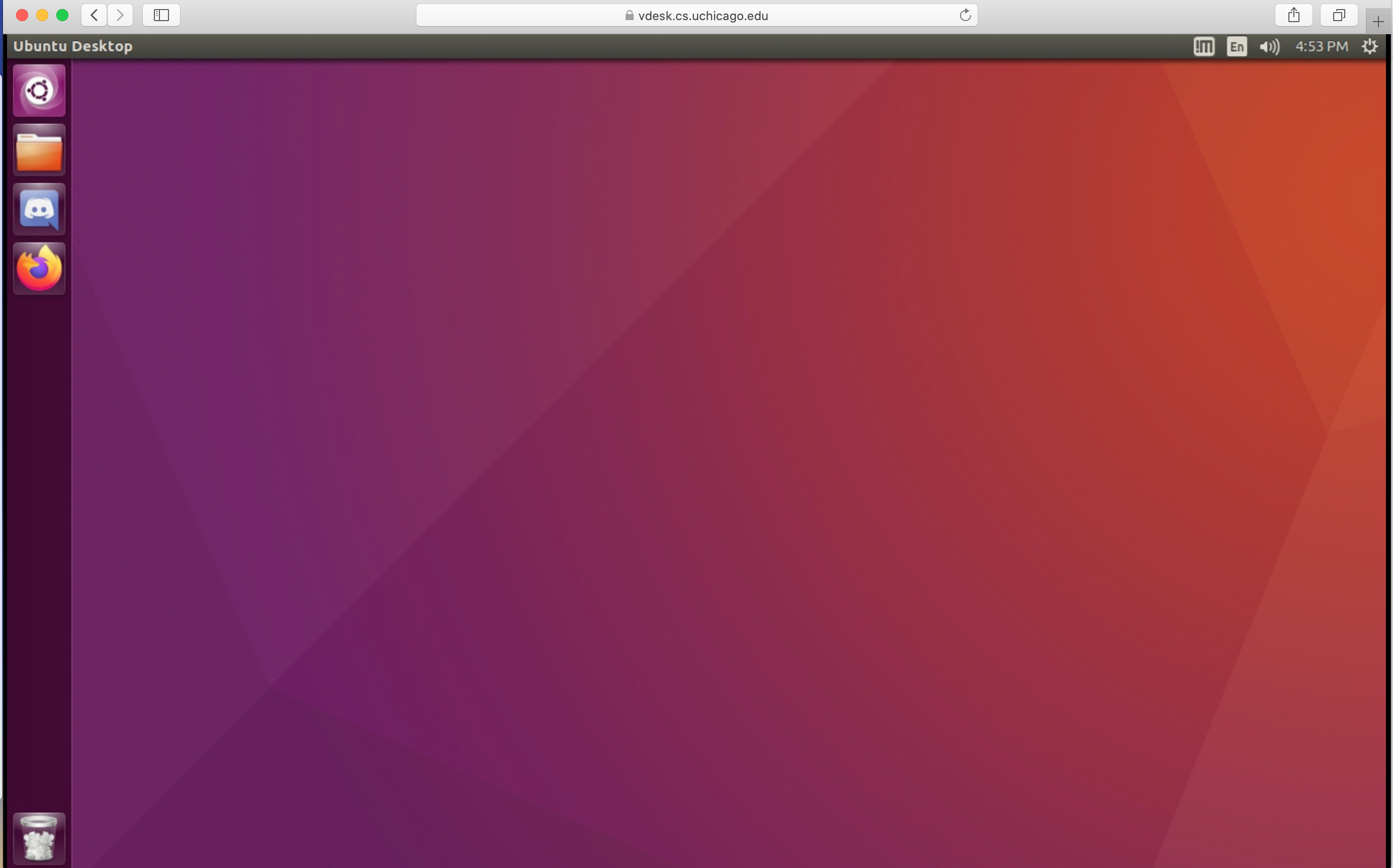
To open a terminal window, click on the application launcher (top left icon) and type terminal in the search bar. You’ll see an icon that looks like a screen and is labelled Terminal. Click on it.
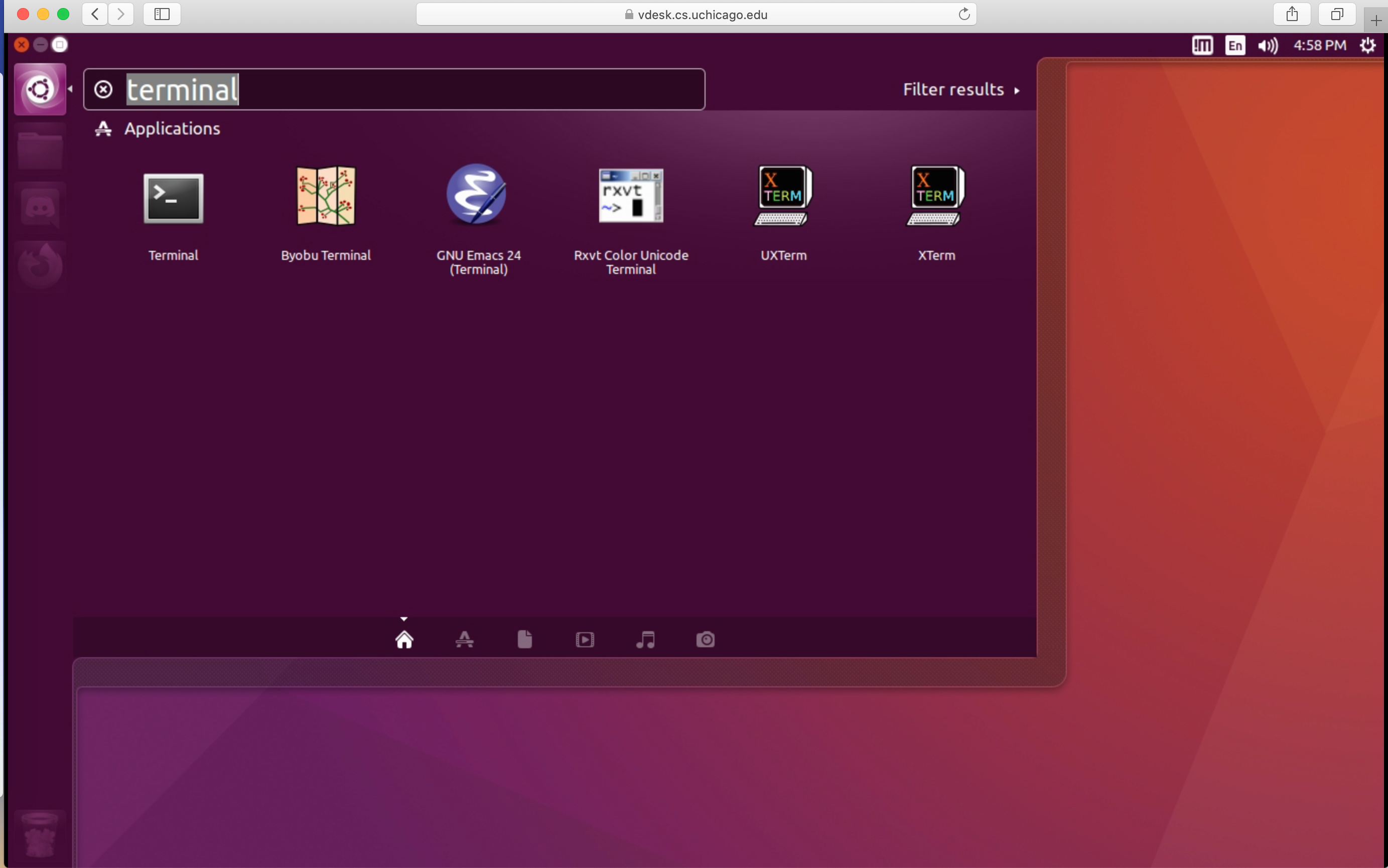
And you’ll get:
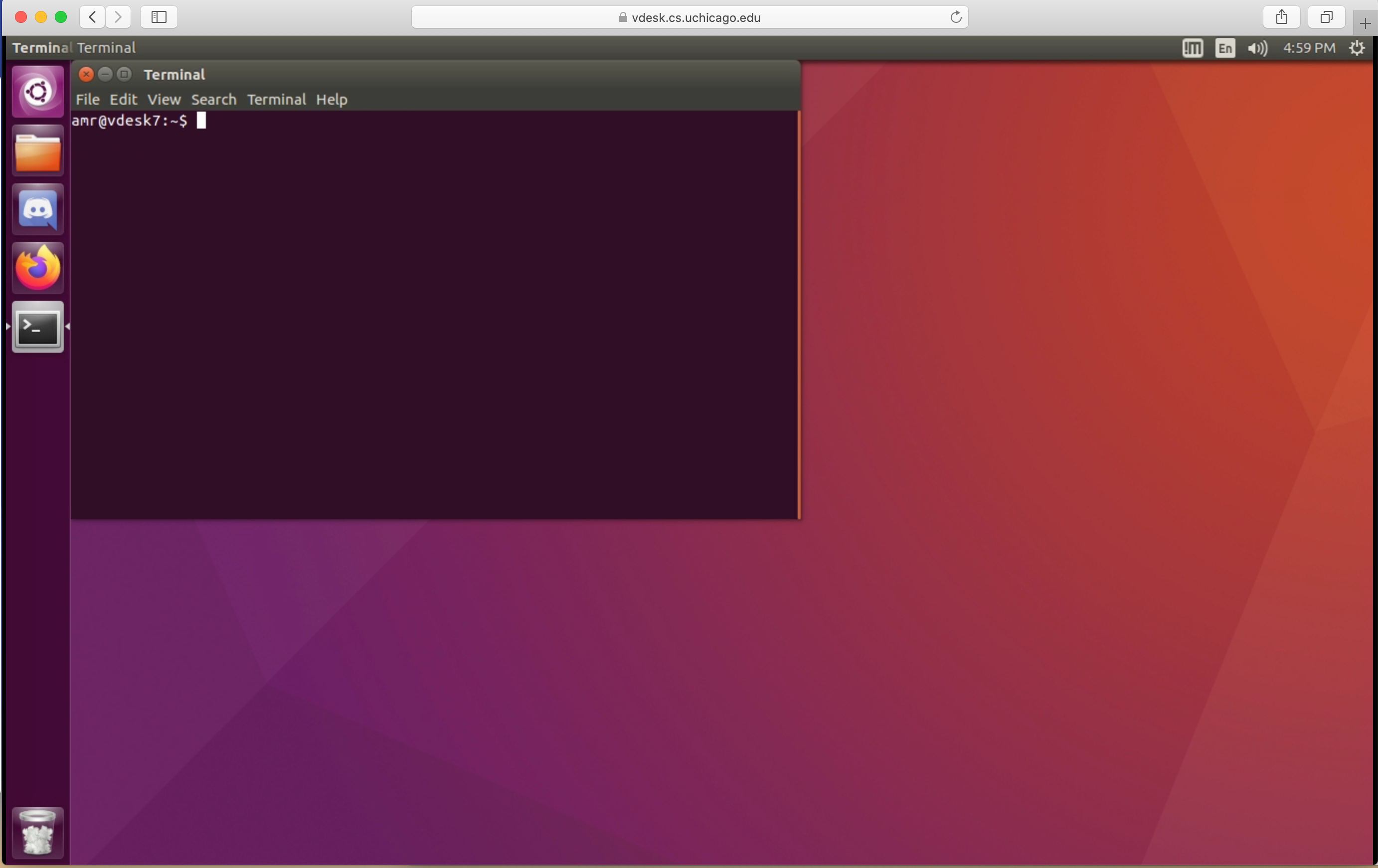
You will use the terminal application very frequently, so I recommend pinning it to the launch bar (the vertical bar with app icons on the left side of the screen). Right click on the terminal icon in the launch bar (if you are running MacOS, you may need to two-finger click instead) and choose the “Lock to Launcher” option.
To log out, click the gear icon on the upper right corner (next to the time) to open the menu and choose Log Out. (Note: If you move your cursor too far into the corner of the screen, you will see the corner of the window “fold” down. Move your cursor away from the corner and try again to click the gear. If you accidentally click on the “folded corner,” click done to get back to the desktop.) You’ll be asked again whether you want to log out:
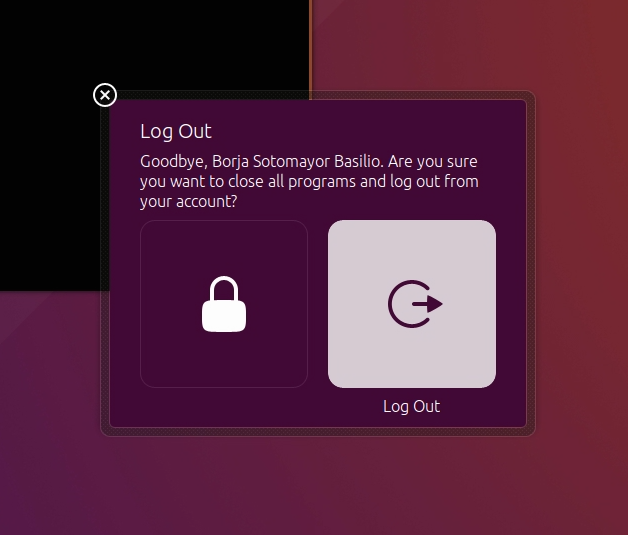
Click the white button on the right and you’ll be logged out. You can then close the browser tab.
Step 4 (Optional)¶
vDesk also offers a desktop client that will generally result in a faster and more responsive desktop experience. If you would like to install the vDesk Client (called NoMachine), you can find installation instructions here:
https://www.nomachine.com/download-enterprise#NoMachine-Enterprise-Client.
Once you have installed NoMachine, follow these instructions for setting up the client to talk to the linux servers: https://howto.cs.uchicago.edu/techstaff:vdesk:client.
If you run into any issues, please don’t hesitate to ask on Piazza, or during the Virtual Linux Lab (that said, if you do run into issues with the desktop client, we encourage you to first work through the Virtual Linux Lab using vDesk through your web browser, and then revisit installing the desktop client after that).